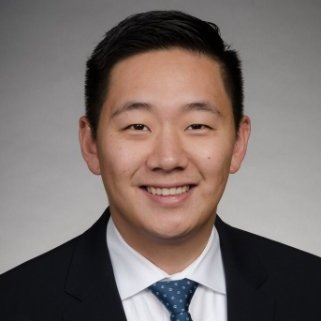Foster Success Stories: From Afghanistan to Microsoft
 Earl Kim spent most of his adult life in the US military — first as a cadet at West Point; later as an infantry officer and in military intelligence. He didn’t work in finance, or for a technology company. Yet today he’s a finance manager at Microsoft, a role he started after graduating from Foster in June.
Earl Kim spent most of his adult life in the US military — first as a cadet at West Point; later as an infantry officer and in military intelligence. He didn’t work in finance, or for a technology company. Yet today he’s a finance manager at Microsoft, a role he started after graduating from Foster in June.
“I knew I always wanted to my my MBA,” he explained. “My initial service commitment was for five years. I planned to leave after that and go back to school, but I really enjoyed what I was doing. Ultimately, I spent four years as an infantry officer and four years in military intelligence before I decided to move on.”
Earl knew he wanted to attend Foster, but by the time he arrived in the fall of 2015, he still wasn’t sure what he wanted to do with his career.
“A lot of great companies come to campus,” he said. “Honestly, their information sessions really helped me narrow down what I wanted to do. During my first year, I tried to go to every single event. All the exposure was really helpful. I wish I could point to a specific thing, but there’s just so much going on at Foster it’s hard to narrow it down. My core classes helped. I knew I wanted to be in the finance field because of the analytical and quantitative nature. From the information sessions I found which companies’ culture and environment best suited my personality”
Earl took advantage of Microsoft’s on-campus recruiting, and landed a finance internship the summer after his first year. He loved the experience and decided he wanted to go back.
“It wasn’t just a pure corporate finance role,” he said. “Part of my project had me working with Power BI. I had to understand the larger system and work with developers. It was way beyond what I had expected going in. I thought I’d just be working on spreadsheets. I was amazed by not only the breadth of my projects but also by the flexibility and resources I was entrusted with.”
During his time at Foster, Earl drew on the support of the veterans community at Foster, while leveraging the strength of the Seattle economy.
“I think a lot of veterans come to business school without the right expectations.” Earl said. “When I started business school, I think I wasn’t as prepared for the career management piece as others. The Veterans Association was huge for me. It helped connect me with a lot of alumni, and in particular, veteran alumni that were able to relate to me and give me advice throughout the process. I was able to talk to a lot of people at big companies in the area — Microsoft, Amazon, Starbucks. It was really easy to reach out to alumni at those companies and sit down with them face-to-face.”
As settles into his post-MBA career, Earl credits his experiences at Foster.
“The people that Foster attracts — it’s a community of people who are willing to do the work; people who don’t think certain tasks are beneath them. You get a really good baseline of knowledge, but I look back most fondly on the practical experience and the teamwork opportunities. I learned a lot about flexibility and adaptability. I’ve already applied those lessons at Microsoft.”
